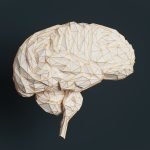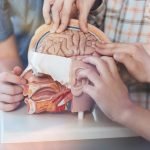A longer reproduction life may protect brain health in women
In a revelation that promises to cast new light on our understanding of cerebral small vessel disease and its relation to hormonal exposure, a...
Scientists use brain stimulation to reduce smoking cravings
Theta-burst transcranial magnetic stimulation (TBS) has emerged as a potential intervention for improving self-control, reducing cigarette cravings, and consequently, mitigating smoking behaviors.
This approach is...
Ultraprocessed foods linked to faster cognitive decline, study confirms
In recent years, ultra-processed foods have been linked to a range of health issues, including obesity, cancer, and inflammatory bowel disease.
A new study now...
Scientists find a common brain network in substance use disorders
A groundbreaking study by researchers at Brigham and Women's Hospital has indicated the presence of a common brain network among individuals with substance use...
Neighborhood disadvantage linked to poor brain health, UCLA study finds
Researchers at the UCLA David Geffen School of Medicine have published a study suggesting that living in a disadvantaged neighborhood can not only affect...
Easy workouts boost cognitive function in older people
We often hear that high-intensity workouts are good for our brains, but what if you're not up for a hardcore gym session? New research...
Parkinson’s disease patients struggle with stigma, study finds
Patients with Parkinson's disease often grapple with both the physical and psychological aspects of the condition, but a new study sheds light on the...
Human brains naturally wired for advanced calculations using Bayesian inference, study finds
In a ground-breaking new study, scientists have confirmed that the human brain is inherently wired to perform advanced calculations, similar to a high-powered computer.
The...
Scientists find evolutionary link between addiction and brain growth
A groundbreaking study from Kent State University’s Department of Anthropology and School of Biomedical Sciences offers novel insights into human brain evolution and its...
How football raises the risk for brain injury
Brain injuries can arise from hits to the head during contact sports like football or soccer.
Repeated brain injuries can lead to a condition called...










